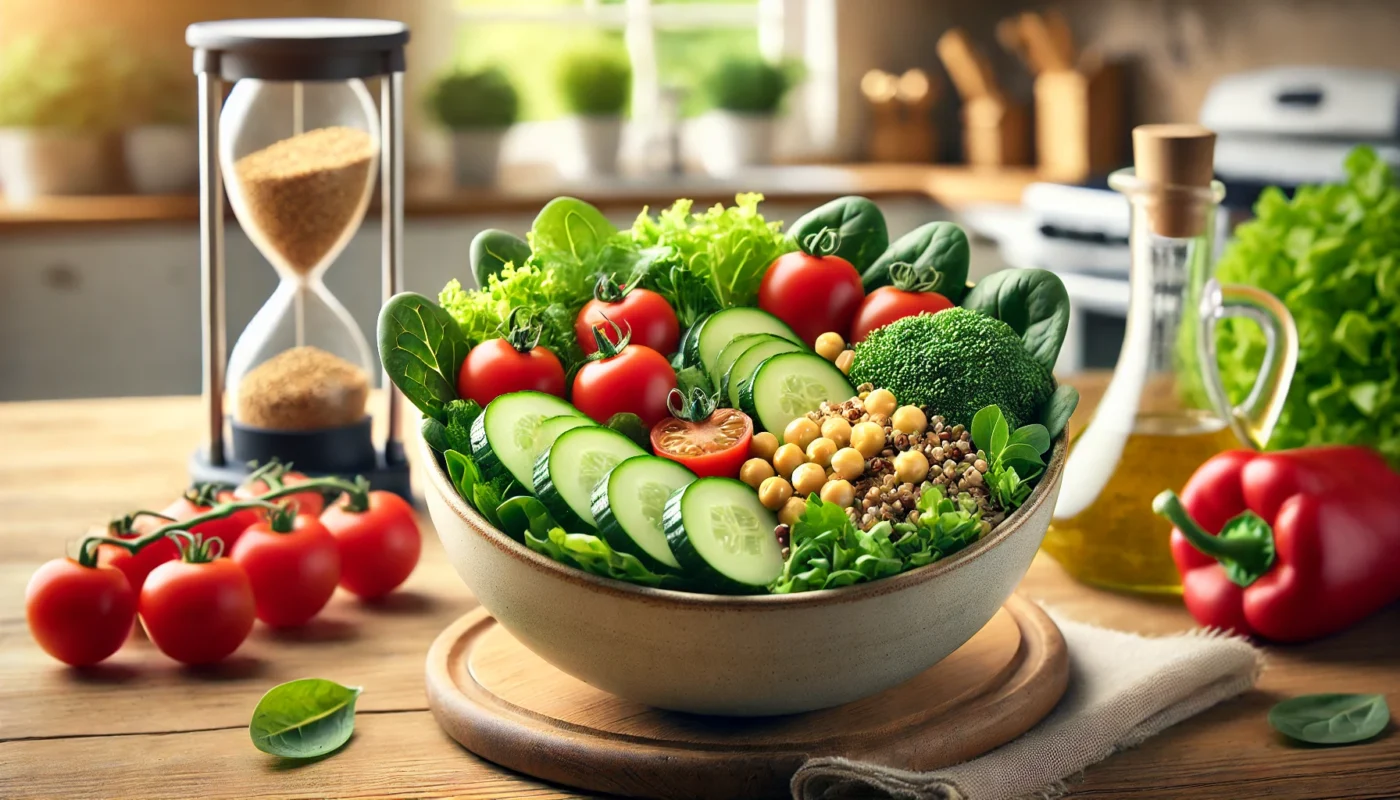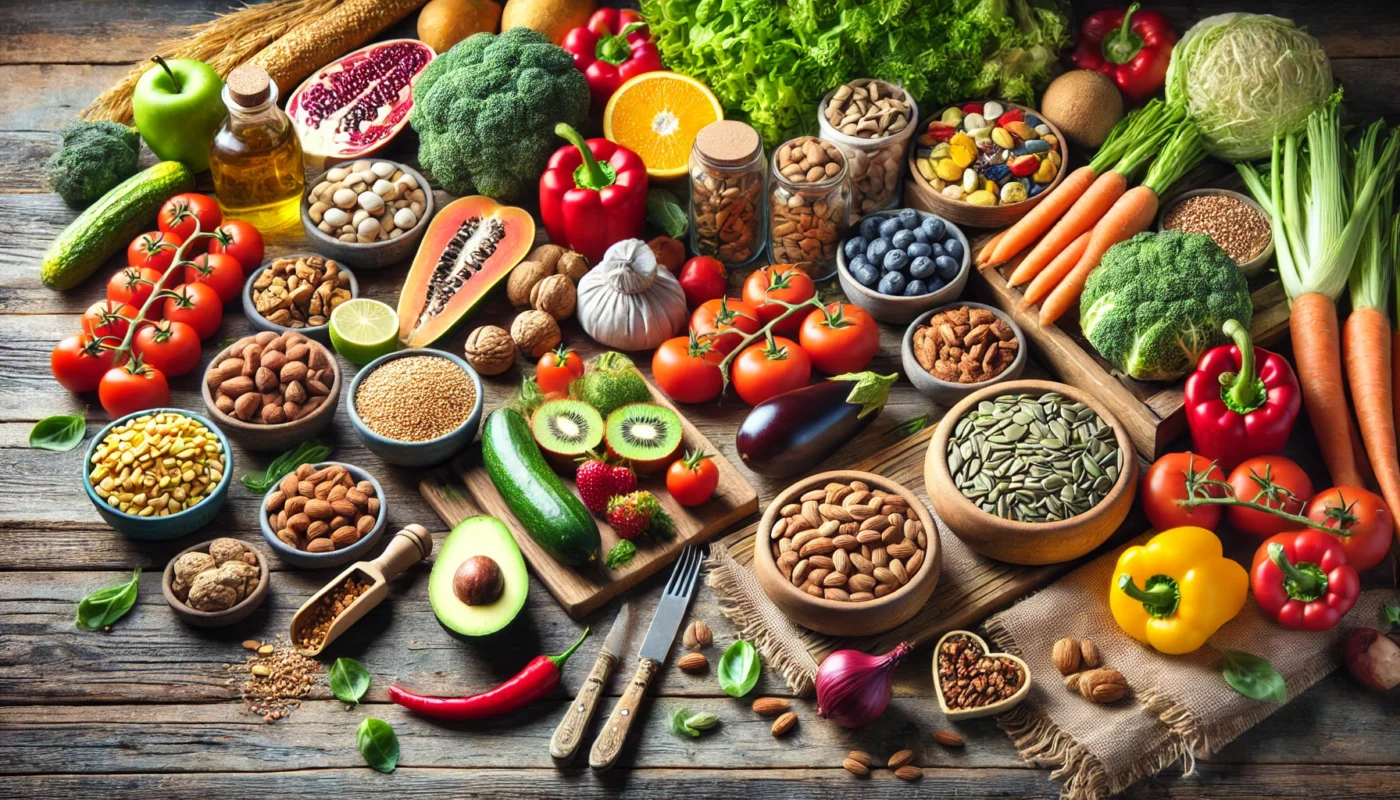Hypertension, or high blood pressure, is a leading global health concern, affecting nearly 1.28 billion adults worldwide according to the World Health Organization (WHO). Often called the “silent killer,” hypertension significantly increases the risk of cardiovascular diseases, stroke, and kidney failure. While medication and lifestyle changes remain the cornerstones of blood pressure management, dietary choices play a pivotal role in prevention and treatment. Plant-based diets, including vegetarian and vegan approaches, have garnered increasing attention for their potential to lower blood pressure and improve overall cardiovascular health.
This article explores the relationship between plant-based diets and hypertension, drawing on scientific research to provide insights into the mechanisms, benefits, and practical considerations of adopting a plant-based lifestyle.
You May Also Like: How Spices Like Turmeric and Ginger Impact Hypertension
The Basics of Plant-Based Diets
A plant-based diet emphasizes whole, minimally processed foods derived from plants, such as fruits, vegetables, legumes, whole grains, nuts, and seeds. Variations of plant-based diets include:
- Vegetarian Diets: Exclude meat, fish, and poultry but may include eggs and dairy products.
- Vegan Diets: Eliminate all animal-derived products, including eggs, dairy, and honey.
- Flexitarian Diets: Primarily plant-based but occasionally include small amounts of animal products.
These diets are rich in fiber, vitamins, minerals, and antioxidants while being low in saturated fat and cholesterol, making them particularly effective for promoting heart health.

The Evidence: Plant-Based Diets and Hypertension
A growing body of research supports the benefits of plant-based diets in reducing blood pressure and lowering the risk of hypertension-related complications.
1. Meta-Analyses and Systematic Reviews
Meta-analyses have consistently shown that plant-based diets are associated with lower blood pressure compared to omnivorous diets.
- A 2020 meta-analysis in JAMA Internal Medicine found that individuals following vegetarian diets had systolic blood pressure (SBP) that was 4.8 mmHg lower and diastolic blood pressure (DBP) that was 2.2 mmHg lower than those consuming omnivorous diets.
- Another meta-analysis published in The Journal of Hypertension (2019) concluded that vegan diets were even more effective, reducing SBP by 6.8 mmHg and DBP by 4.2 mmHg on average.
2. Observational Studies
Large-scale observational studies, such as the Adventist Health Study-2, have also highlighted the relationship between plant-based diets and reduced hypertension prevalence. The study revealed that vegetarians had a 44% lower risk of developing hypertension compared to meat-eaters, while vegans experienced an even greater risk reduction.
3. Interventional Studies
Randomized controlled trials have demonstrated that transitioning to a plant-based diet can significantly lower blood pressure in hypertensive individuals.
- A study in Circulation (2019) found that participants adopting a vegan diet for 12 weeks experienced a 10 mmHg reduction in SBP and an 8 mmHg reduction in DBP compared to those on a standard diet.
Mechanisms Behind the Blood Pressure-Lowering Effects
Plant-based diets lower blood pressure through several physiological and biochemical mechanisms:
1. High Nutrient Density
Plant-based diets are rich in potassium, magnesium, and calcium, which play crucial roles in blood pressure regulation:
- Potassium: Helps balance sodium levels and relaxes blood vessel walls.
- Magnesium: Promotes vascular relaxation and reduces resistance.
- Calcium: Supports healthy arterial function.
- Evidence: A study in The American Journal of Clinical Nutrition (2017) showed that potassium-rich diets reduced SBP by 3–4 mmHg in hypertensive patients.
2. Low Sodium Content
Whole plant-based foods are naturally low in sodium, reducing the risk of fluid retention and vascular constriction associated with high sodium intake.
- Tip: Preparing meals at home and avoiding processed vegan products (e.g., mock meats) helps maintain low sodium levels.
3. High Dietary Fiber
Fiber, abundant in fruits, vegetables, legumes, and whole grains, helps improve cholesterol profiles, regulate blood sugar, and reduce inflammation—all factors contributing to lower blood pressure.
- Evidence: Research in Hypertension (2018) found that a high-fiber diet reduced SBP by 5 mmHg on average in individuals with mild hypertension.
4. Improved Endothelial Function
Plant-based diets are rich in antioxidants, such as polyphenols, which combat oxidative stress and improve endothelial function. Healthy endothelial cells produce nitric oxide, a molecule that dilates blood vessels and lowers blood pressure.
5. Weight Management
Plant-based diets are typically lower in calories and high in satiety-promoting foods, aiding weight loss and maintenance. Excess weight is a significant risk factor for hypertension, with even modest weight loss resulting in measurable blood pressure reductions.

Practical Benefits of Plant-Based Diets for Hypertension
Adopting a plant-based diet offers several advantages beyond blood pressure management:
1. Reduction in Medication Dependence
Several studies have found that hypertensive patients adopting plant-based diets can reduce or even eliminate their reliance on antihypertensive medications, under medical supervision.
2. Lower Cardiovascular Risk
By reducing blood pressure, cholesterol, and inflammation, plant-based diets significantly lower the risk of heart disease and stroke.
- Evidence: A study in The Lancet (2019) reported that plant-based eaters had a 32% lower risk of cardiovascular disease compared to omnivores.
3. Sustainability
Plant-based diets are environmentally sustainable, addressing both health and ecological concerns.
Challenges and Considerations
While plant-based diets offer numerous health benefits, they also come with potential challenges that require careful management:
1. Nutrient Deficiencies
Certain nutrients, such as vitamin B12, iron, and omega-3 fatty acids, may be less abundant in plant-based diets.
- Solution: Include fortified foods or supplements to meet daily requirements. For example:
- Vitamin B12: Found in fortified plant-based milks and nutritional yeast.
- Iron: Consuming legumes and dark leafy greens with vitamin C-rich foods enhances absorption.
- Omega-3 Fatty Acids: Flaxseeds, chia seeds, and algae-based supplements are excellent sources.
2. Processed Plant-Based Foods
Many processed vegan products, such as faux meats or vegan cheeses, are high in sodium and unhealthy fats, negating the benefits of a plant-based diet.
- Solution: Focus on whole, minimally processed foods to maximize health benefits.
3. Adherence
Transitioning to a plant-based diet can be challenging for individuals accustomed to animal-based meals.
- Solution: Gradual changes, such as Meatless Mondays or incorporating more plant-based meals weekly, can ease the transition.
Tips for Adopting a Plant-Based Diet
- Start Small: Begin by adding more fruits, vegetables, and whole grains to your current diet.
- Experiment with Recipes: Explore plant-based recipes that incorporate diverse flavors and textures.
- Plan Balanced Meals: Ensure each meal includes a source of protein (e.g., legumes or tofu), healthy fats (e.g., avocado or nuts), and complex carbohydrates (e.g., quinoa or brown rice).
- Seek Professional Guidance: Work with a registered dietitian to create a personalized plan that meets your nutritional needs and health goals.

The Role of Nutritional Supplements in Plant-Based Diets for Hypertension
While plant-based diets are naturally rich in many essential nutrients, supplements can provide additional support for blood pressure management. Below are five evidence-based options:
1. Magnesium Glycinate
Magnesium supports vascular relaxation and reduces arterial stiffness. A study in Magnesium Research (2016) reported a 5 mmHg reduction in SBP with magnesium supplementation.
2. Coenzyme Q10 (CoQ10)
CoQ10 is a powerful antioxidant that supports endothelial function and lowers oxidative stress. A clinical trial in Hypertension Research (2007) found that CoQ10 reduced SBP by 11 mmHg.
3. Hibiscus Extract
Hibiscus enhances nitric oxide production, promoting vasodilation and reducing blood pressure. The Journal of Nutrition (2010) reported a 6 mmHg reduction in SBP with daily hibiscus tea consumption.
4. Omega-3 Fatty Acids
Plant-based omega-3 supplements, such as those derived from algae, support cardiovascular health by reducing inflammation and improving arterial elasticity. A meta-analysis in Hypertension (2018) found that omega-3s lowered SBP by 4 mmHg.
5. Beetroot Powder
Beetroot is rich in dietary nitrates, which improve blood flow and reduce hypertension. A study in Nutrition Journal (2017) demonstrated that beetroot supplementation reduced SBP by 4 mmHg.

Conclusion
Plant-based diets offer a powerful, evidence-backed approach to managing and preventing hypertension. By emphasizing nutrient-dense, whole foods rich in potassium, magnesium, fiber, and antioxidants, these diets support healthy blood pressure levels while providing numerous additional benefits for heart health and overall well-being. While challenges such as nutrient deficiencies and adherence may arise, they can be effectively managed with proper planning, supplementation, and professional guidance. As research continues to highlight the profound impact of plant-based eating on hypertension, adopting this dietary approach represents a proactive step toward a healthier and more sustainable lifestyle.
References
- JAMA Internal Medicine. (2020). The impact of plant-based diets on blood pressure: A meta-analysis. JAMA Internal Medicine. Retrieved from https://jamanetwork.com
- The Journal of Hypertension. (2019). Vegan diets and hypertension: A systematic review. The Journal of Hypertension. Retrieved from https://journals.lww.com
- Circulation. (2019). Effects of vegan diets on blood pressure: Randomized trials. Circulation. Retrieved from https://www.ahajournals.org
- The American Journal of Clinical Nutrition. (2017). Dietary potassium and its role in blood pressure regulation. The American Journal of Clinical Nutrition. Retrieved from https://academic.oup.com
- Nutrition Journal. (2017). The role of beetroot powder in vascular health. Nutrition Journal. Retrieved from https://www.biomedcentral.com
Key TERMS for this article:
Plant-Based Diets, Hypertension, Blood Pressure Management, Cardiovascular Health, Vegan Diet, Antioxidants, Dietary Fiber
Relevant and useful TAGS for this article:
Plant-Based Eating, Hypertension Management, Vegan Lifestyle, Heart Health, Nutrient-Dense Foods, DASH Diet Alternatives, Blood Pressure Control, Potassium-Rich Foods, Magnesium Benefits, Sustainable Nutrition
Important Note: The information contained in this article is for general informational purposes only, and should not be construed as health or medical advice, nor is it intended to diagnose, prevent, treat, or cure any disease or health condition. Before embarking on any diet, fitness regimen, or program of nutritional supplementation, it is advisable to consult your healthcare professional in order to determine its safety and probable efficacy in terms of your individual state of health.
Regarding Nutritional Supplements Or Other Non-Prescription Health Products: If any nutritional supplements or other non-prescription health products are mentioned in the foregoing article, any claims or statements made about them have not been evaluated by the U.S. Food and Drug Administration, and such nutritional supplements or other health products are not intended to diagnose, treat, cure, or prevent any disease.

